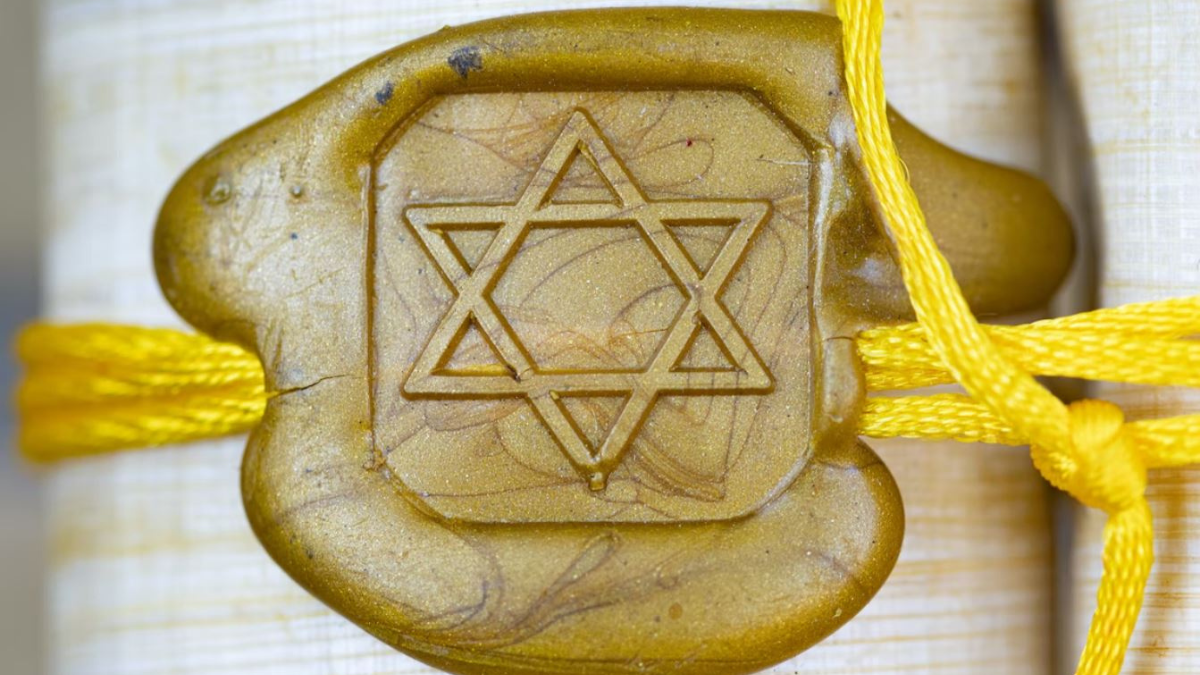

The Church and Antisemitism
Today, as antisemitism once again rears its ugly head, the Church should take the lead in opposing this evil and supporting the value and dignity of our Jewish neighbors.
01/2/23
John Stonestreet Glenn Sunshine

Over the centuries, Christians have been responsible for many crimes and evils committed against Jews, from malicious accusations to forced conversions to expulsions and massacres. While the Church has been culpable for some of the violence, instigated by friars, preachers, and church leaders, there is more to the story.
For example, during the First Crusade, a widespread outbreak of antisemitic massacres occurred when mobs in Germany attacked Jewish communities. They were motivated by a fanaticism and a need to finance their journey to the Holy Land. Although the Crusade had been called by the Pope, the attacks on the Jews were condemned by the entire Church hierarchy. Some bishops offered Jews refuge in surrounding cities, while others sheltered them in their own palaces, though not always successfully. Others bought off the marauding crusaders with silver.
After the First Crusade, Popes Gregory X and Benedict XIII declared that Jews were not enemies of Christians and that their lives and property were to be respected. In his preaching during the Second Crusade, Bernard of Clairvaux explicitly condemned the attacks on the Jews during the First Crusade.
Later, when the Black Death struck Europe, rumors began to circulate that the disease was caused by Jews poisoning the wells of Christians on orders from a Spanish rabbi. Once again, violence against Jews broke out. Hundreds of Jewish communities were destroyed. In the city of Strasbourg, before the plague had even reached the city, 900 Jews were herded into a synagogue that was then burned to the ground.
Again, bishops attempted to stop the violence. Some protected the Jews in their own palaces, and Pope Clement VI issued two papal bulls refuting the idea of well poisoning by pointing out that the Jews were dying of plague just like the Christians. Although the Church in the Middle Ages was guilty of antisemitic acts, particularly at a local level, many secular authorities and mobs also targeted the Jews as convenient scapegoats in times of crisis.
In Protestant history, Luther’s vicious tirades against the Jews are well known and were used by Hitler to justify the Holocaust. Though Luther’s comments are inexcusable, two factors should be considered. First, Luther was initially friendly to the Jews because he thought that with his restoration of the Gospel, they would convert to Christianity. When they didn’t, he became bitter and turned against them. By this point, he was an old, sick, and frankly cranky man. He tended to attack anyone who disagreed with him with a venom similar to that he poured out on the Jews. In other words, his vicious attacks were not exclusively aimed at Jews.
Second, unlike Hitler, Luther saw the Jews not as a race but as a religion. He was fine with Jews who converted, unlike Hitler who defrocked Lutheran pastors with Jewish ancestry. It is thus more accurate to label Luther as anti-Judaic rather than antisemitic. None of this, of course, excuses Luther’s vicious and horrible words. It does, however, put them in context.
Not all Protestants shared Luther’s attitudes. The Reformed tradition tended to be friendlier to Jews than Luther. Calvin did not distinguish between the Old Covenant with Israel and the New Covenant, though he shared in the negative attitudes toward the Jews that were common in his day. However, his successor Theodore Beza argued for a future restoration of Israel, an idea that spread to Britain via the Geneva Bible. This idea led many Anglican and Puritan leaders to urge Christians to love and minister to the Jews rather than hold them in contempt. As a result, both England and America had far less antisemitism than was common across much of continental Europe.
Dutch Calvinists also welcomed the Jews, for a variety of reasons, including opposition to Spain and covenant theology. Likewise, as a persecuted minority religion, the Huguenots were supportive of the Jews. Centuries later, Dutch Calvinists such as Corrie Ten Boom and Huguenots in France such as the Trocmés continued to live out these commitments by saving Jews from the Holocaust.
Though Christian churches and Christian individuals have been guilty of antisemitism, the record is better than skeptics and popular history suggest. Whenever churches have stood up for the Jews, the degree of antisemitism in that culture has been far less. Today, as antisemitism once again rears its ugly head, the Church should take the lead in opposing this evil and supporting the value and dignity of our Jewish neighbors.
Today’s Breakpoint was co-authored by Dr. Glenn Sunshine. For more resources to live like a Christian in this cultural moment, go to colsoncenter.org.
Have a Follow-up Question?
Up
Next

Related Content

© Copyright 2020, All Rights Reserved.













